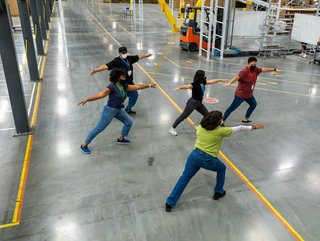Automation Tech Is Easing Manufacturing’s Labour Problems

Labour shortages, worker retention and training remain major concerns in manufacturing workplaces like warehouses. The main concerns of supply chain managers are the time it takes to train the workforce, the high turnover rates and the urgent need for digital upskilling.
In short, it’s difficult for companies to hire and retain the right people in the right roles, whether this is for warehouse workers and managers, drivers or customer support specialists.
Technology's role in addressing labour challenges and elevating productivity
Technology, however, is riding to the rescue, by playing an increasingly important part in productivity in the face of ongoing labour challenges, both by plugging labour shortages but also enhancing worker experience and productivity, thus helping improve staff retention.
Take supply chain management and 3PL logistics firm Arvato as an example. Arvato deploys a fleet of package-handling robots in its Kentucky centre, and plans to roll these out across Europe, starting with its Dutch sites.
The mobile autonomous robot performs package-handling tasks for greater efficiency and safety. It’s mounted on a mobile platform untethered to power or air lines, which allows it to be deployed across Arvato’s network.
This means it can unload trucks and containers, saving employees in warehouse operations from doing this physically demanding work.
How automation enhances employee wellbeing and meeting supply chain demands
For Alex Rees, Arvato Project Manager, the health of employees is a high priority.
“This relieves the burden on our employees, who in return can take on value-adding activities in other areas. Automation is also an important step in addressing the general issue of staff availability."
These are sentiments also felt by Keith Fisher, President of Honeywell Intelligrated, where he is in charge of warehouse automation for Honeywell, the US multinational business that specialises in aerospace, building technologies, performance materials and technologies, as well as safety and productivity solutions
Fisher says labour shortages continue to be a pressing challenge faced by warehouse operators, especially across Europe.
“Across the continent, the past 12 months has seen a decrease in workforce availability across all industries, with the warehousing and logistics sector being one of the most at-risk,” he says.
Bearing this out, recent figures from the UK’s Chartered Institute of Logistics and Transport show that 86% of organisations are experiencing staff shortages in warehousing.
Fisher says a saving grace for warehouse operations has been automation: “Not only is automation meeting the growing demand for faster order fulfilment, driven by consumer expectations amid the rise of e-commerce, but it is also being used to gaps caused by labour shortfalls.”
He cites “intelligent automated sortation equipment” as an example.
“This is enabling many companies to offset labour shortages,” he says. “Sortation technology boosts efficiency by combining items from multiple locations, to improve order processing time and accuracy.
Fisher says it also “quickly directs products to proper staging and shipping lanes”, and adds that autonomous mobile robots (AMRs) are emerging as another invaluable asset for warehouse operators.
“AMRs can easily be integrated into existing operations to transport products efficiently through the warehouse on non-linear paths,” he explains.
This cuts reliance on staff to push-loaded carts or drive or forklifts, thus freeing up capacity for other tasks.
Fisher believes this collaborative approach to automation tech is the gold standard when it comes both to easing warehouse labour issues and also the urgent need for lightning-quick last-mile logistics.
“It is the ideal way to use these emerging technologies,” he says. “It reduces repetitive tasks that are not the most eff ctive use of people’s time.”
******
Make sure you check out the latest edition of Manufacturing Digital and also sign up to our global conference series - Procurement & Supply Chain 2024 & Sustainability LIVE 2024
******
Manufacturing Digital is a BizClik brand.
- Exotec: Warehouse Automation & The British Alcohol IndustrySmart Manufacturing
- SAP’s AI Joule set to Transform Supply Chain ManufacturingAI & Automation
- Top Ten: Diverse Companies in ManufacturingProduction & Operations
- Report: Manufacturers Struggle With Data’s Business ValueProduction & Operations






